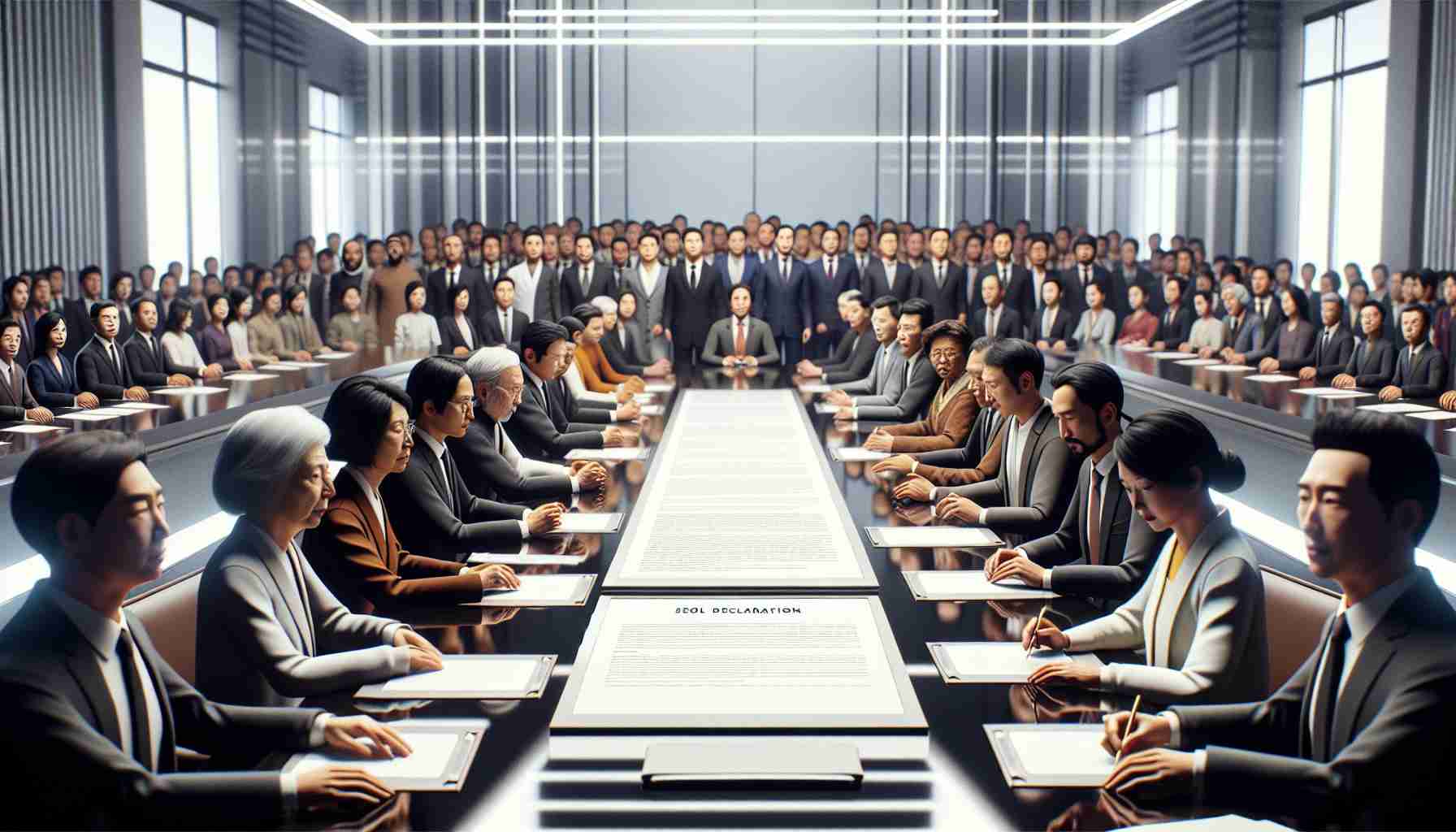Seoul Poises to Elevate Its AI Leadership
Seoul is set to host the notable ‘Artificial Intelligence (AI) Seoul Summit’ on the 21st and 22nd of this month. The event is anticipated to be a significant step for South Korea to bolster its position as a frontrunner in AI on a global scale. Presidential office in South Korea has expressed optimism that through this summit, South Korea will establish itself among the major AI nations, labeled as the AI G3.
Advancing AI Safety, Innovation, and Inclusivity
Following the ‘AI Safety Summit’ held in Bletchley Park, UK, last year, South Korean President Yoon and UK Prime Minister Rishi Sunak are set to co-host this sequel event in Seoul. The presidential science and technology advisor expressed enthusiasm for South Korea’s opportunity to strengthen its global influence in AI, leveraging the international norms set forth at the summit.
Comprehensive Discussions on AI Governance
A national security official has indicated that the summit will include in-depth dialogues with global AI company executives on governance principles centered on the core values of AI – safety, innovation, and inclusivity. Unlike the previous meeting, which was focused primarily on safety, the upcoming summit will broaden its scope to include discussions on inclusivity and innovation.
Leadership and Collaboration Shaping AI’s Future
The summit’s main session, to take place through video conference, will be presided over by President Yoon and Prime Minister Sunak, centered on the theme of ‘Building an Innovative and Inclusive Future on the Foundation of AI Safety’. Both leaders are committed to leveraging the potential of AI technology to create a better world and will introduce three key principles in Seoul – innovation, safety, and inclusivity.
During the ministerial session on the following day, ministers from South Korea and the UK will co-chair the event, with China participating only in the ministerial session. The summit is expected to result in the adoption of the ‘Seoul Declaration,’ uniting common views on advancing AI innovation and principles.
Global Context of AI Strategies and South Korea’s Position
As Seoul prepares to adopt the Seoul Declaration at the AI Seoul Summit, South Korea’s commitment to AI is part of a global trend where nations recognize the strategic importance of AI in economic development, national security, and international competitiveness. South Korea’s goal to position itself as one of the AI G3 nations (alongside powerhouses such as the United States and China) is a statement of ambition reflecting the country’s willingness to invest in and prioritize AI technology. The Seoul Declaration may outline the country’s roadmap for AI leadership with a focus on governance, innovation, and ethics.
Key Questions and Answers
Q: What are the main objectives of the Seoul Declaration?
A: The objectives are likely to emphasize the establishment of international norms for AI governance based on safety, innovation, and inclusivity. It may also aim to promote collaboration among countries to harness the potential of AI while addressing ethical and security concerns.
Q: Why is the participation of China only in the ministerial session significant?
A: The limited participation of China may indicate geopolitical sensitivities or nuances in diplomatic relations, particularly in the context of AI development where nations might have competing interests or differing governance approaches.
Key Challenges and Controversies
Challenge: Finding common ground on AI governance, given the diverse approaches and policies of different countries, can be difficult. Harmonizing standards while respecting national interests and sovereignty is a complex issue.
Controversy: Debates often arise around the balance between rapid AI innovation and the need to ensure ethical considerations, data privacy, and security are adequately addressed.
Advantages and Disadvantages of the Seoul Declaration
Advantages:
– It could facilitate international cooperation in AI, encouraging uniform regulations and standards that benefit global stakeholders.
– The declaration might spur investment into AI technologies and boost economic growth in participating countries.
– Collaborative efforts can lead to better safety protocols and ethical guidelines for AI development and deployment.
Disadvantages:
– Rigid frameworks can potentially stifle innovation by imposing excessive regulations.
– There might be an imbalance in the benefits accrued from the AI advancements, favoring more technologically advanced countries.
– Disagreements on AI governance can lead to geopolitical tensions if the declaration is perceived as serving the interests of certain nations over others.
For further information about AI development and international cooperation, you can visit the official websites of relevant international organizations and governmental bodies. Here are a few suggested links:
– United Nations
– Organisation for Economic Co-operation and Development (OECD)
– World Economic Forum
Please note that the availability of specific information about the Seoul Declaration might depend on the outcomes of the summit and any official releases from the participating countries or organizations.

